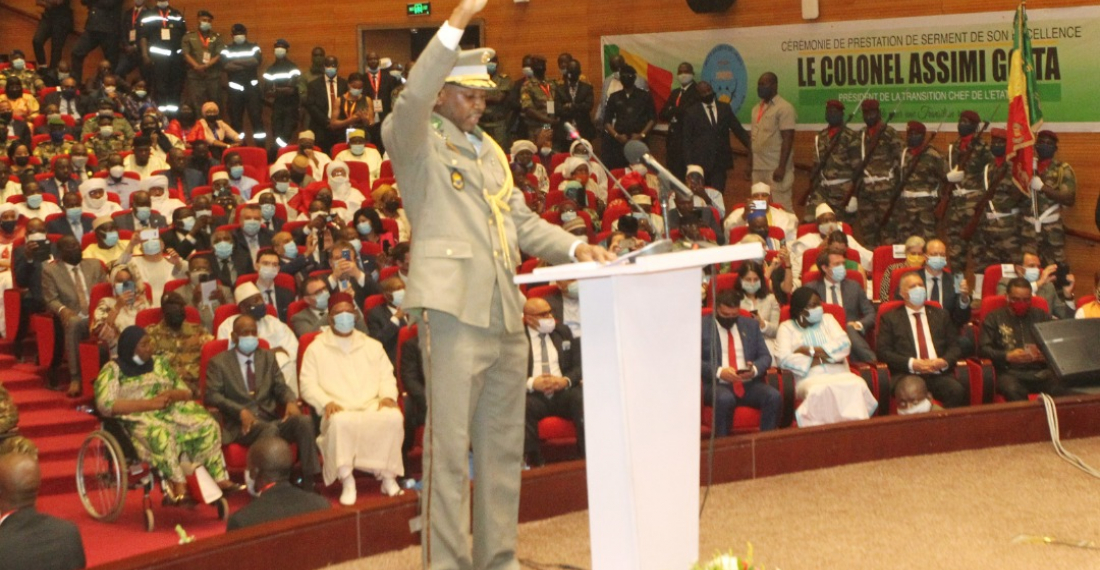Colonel Assimi Goïta, the leader of the two military coups in Mali in the last 9 months, has been formally sworn in as the country’s transitional president. During Monday's (7 June) investiture ceremony in Bamako, Goïta took the oath of office and promised that Mali would "respect its commitments".
"I swear before God and the Malian people to faithfully preserve the republican regime [...], to preserve democratic gains, to guarantee national unity, the independence of the motherland and the integrity of the national territory", Goïta declared.
Since the coup on 24 May, Goïta has faced calls from the international community to return power to the country’s transitional civilian leadership – appointed following the coup in August last year – and for the country to continue on its path towards elections in February 2022, with a view to bringing civilians back to power. Shortly after being sworn in as president, Goïta appointed opposition leader and former minister, Choguel Maiga, as prime minister; however, it is not yet clear if this will satisfy his critics. Speaking at yesterday's ceremony, the colonel affirmed his desire to organise "credible, fair and transparent elections on the scheduled dates":
"I would like to reassure sub-regional and regional organisations and the international community in general that Mali will honour all of its commitments for and in the best interests of the nation.”
France and the United States have suspended their military co-operation with Mali over the recent coup; the Economic Community of West African States (ECOWAS) and the African Union suspended Mali’s memberships of their institutions on 30 May and 2 June respectively.






